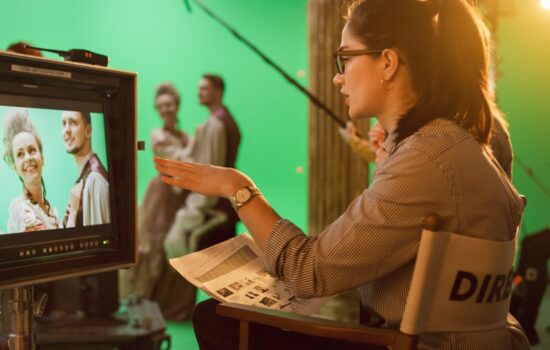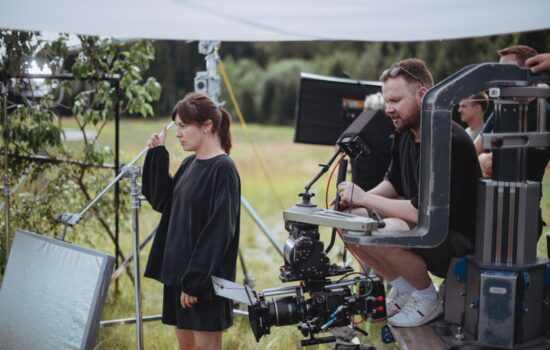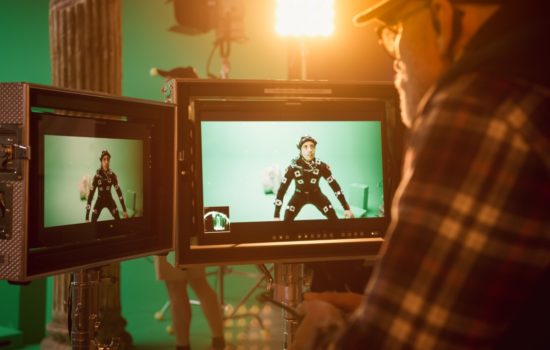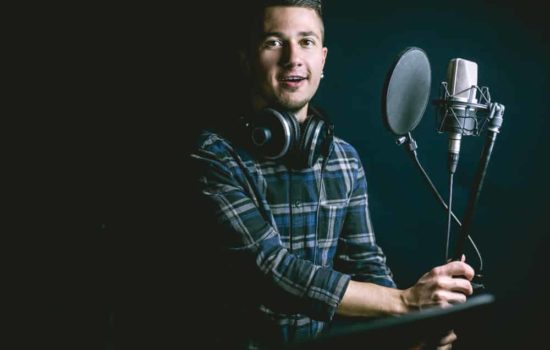Film Professor

How To Become a Film Professor
People also ask
Career Description
“Every day is different,” says Neil Landau, Professor and Assistant Dean at UCLA. He currently teaches both lecture and workshop classes at the School of Theater, Film and Television.
His lectures, which may run from an hour-and-a-half to three hours, are typically given to a large group of students, while his workshops might include less than a dozen individuals. This allows him to have more time with each student as he helps them shape the vision of their projects.
Landau might also be on campus for administrative meetings, other department initiatives, or his office hours that allow his students to talk with him one-on-one.
Landau notes, though, that the bulk of his work is done at home. It’s then that he’s able to read through his students’ assignments and give notes on them, as well as prepare for his classes.
Who is called a Professor?
A Professor is a person who teaches in higher education such as a college or university.
Salary
The average annual salary for Professors is approximately $63,100. The salary range for Professors runs from $14,500 to $157,500.
If someone is on their way to becoming a tenured Professor, they will achieve a higher salary. A tenured Professor is someone who is a full-time employee of the school with lifetime job security. These Professors also receive considerable benefits, such as sabbatical, which allows them paid time off from their teaching duties to do research or work on other projects.
Yet many part-time, non-tenured or Adjunct instructors (who have not earned the title of Professor), continue to work (or seek work) in their areas of expertise outside of the university; these jobs can continue to bolster one’s resume and can provide additional income beyond teaching.
Students always appreciate instructors who continue to be at the leading edge in their fields — and that means continuing to work in the metaphorical trenches while also teaching and mentoring. A great media or arts Professor brings his or her experiences from out in the “real world” back into the classroom.
Hey, what do you think about trying our new Film Career HelperFilm Career Helper really quick? It’s totally free and could help get your career moving fast! Give it a try. It’s totally free and you have nothing to lose.
Career Outlook
The reality for many Professors is that their job doesn’t end when they come home. As Landau mentioned, much of his work — looking over assignments and giving notes — is done outside of his time at school. In fact, he admits that between his responsibilities at UCLA and his other professional pursuits, he works seven days a week. Time divided between work and life is something that Landau continually tries to balance.
But Landau is also quick to mention the other staff at his school who all help in achieving that balance. He works with three Teacher Assistants, as well as his own Personal and Administrative Assistant. Because of his additional responsibilities as an Assistant Dean, Landau also regularly works with other administrators and teachers.
Career Path
Landau states that he had an “atypical journey” on his way to becoming a Professor. He received his bachelor’s degree at UCLA, making him an alumnus of the school at which he now teaches, and it was this education that provided a launching pad for his writing career.
A highly successful produced film and television Writer, Landau decided to return to school for his master’s degree as a way to gain more teaching opportunities.
In addition to his other professional achievements, Landau has now been teaching at UCLA for nearly twenty years. It began as a part-time position, but he soon took on more responsibilities at the school and even began creating new classes.
Now Landau works at UCLA as not only as a Professor, but also as an Assistant Dean, a leadership position. His enthusiasm to take on more duties at the school comes largely from his desire to help students achieve their goals. Says Landau, “My greatest joy is mentorship.”
Before becoming full Professors, most begin as Lectures, Assistant or Associate Professors, or Adjunct Professors.
The jobs that could help someone towards the path of becoming a Professor vary widely based on what they would like to teach. That being said, Landau states that having any produced work, meaning a film, television show, web series, etc. that has been made and shown on a theater screen, TV, or online, will help anyone looking to teach.
If a person doesn’t have produced credits, that doesn’t mean they won’t be able to find work as a Professor. Community colleges and schools in smaller towns often will hire individuals without that background.
To begin building a resume of produced work, it’s never too soon to help on any projects, even student films, that will give someone experience. Every job will help that person gain more expertise, which will only help on the next project.
To begin on the path to becoming a Professor, Landau has some tips:
- Make getting good grades a priority right now.
- Explore extracurricular activities, which will help on college applications.
- Take classes during the summers.
- Make a short. Use a smartphone to record a film and put it online.
- Read!
Experience & Skills
For someone looking to become a Professor, Landau advises that “the more you can distinguish yourself, the better.” Beyond degrees, someone aspiring to be a Professor must have other achievements. That might mean having a background in research and being able to publish papers or books. It could also include being asked to speak at industry conferences.
All of these accomplishments are important both to increase a person’s chances of getting hired at a college or university and to make them a more successful teacher in the classroom by passing on that knowledge to their students.
In particular, the expertise and experience that a Professor has can help their students to avoid common mistakes. Landau sees it as part of his job to help students learn how the real world works so that once they are in it, they understand what it takes to be successful. In many cases, they won’t be given that kind of patience and guidance once they leave school.
The person who would best succeed as a Professor is someone whom Landau calls a “diplomat.” That means they can see both sides in any situation, and while their job is to give constructive feedback on their students’ work, it’s also necessary that they provide a supportive environment in the classroom.
Also, the job of a Professor is not simply to say, “No, you can’t do this.” Instead, ask questions. A Professor should both set the bar high and have a nurturing personality so that they can help their students produce their best work. Landau emphasizes that individuals who are good communicators with an endless dose of curiosity can also make great Professors.
Is Professor or Doctor higher?
A person referred to as a Doctor has earned that merit because they completed either their MD or PhD. In contrast, a Professor may be referred to as such without the extensive higher learning required for either a MD or PhD, meaning that the term Doctor is in a manner of speaking a “higher” distinction.
Education & Training
To become a Professor, getting a bachelor’s degree in the field in which a person would like to teach is necessary. “If you’re going into academia, they take degrees very seriously,” says Landau. It’s a competitive field, so to be a more attractive job candidate to colleges and universities, he also recommends getting a master’s degree or doctorate.
Training also comes from working experience. Especially in the film industry, having professional credits can help greatly towards eventually getting a job as a Professor. Landau advises, “Your career is like cards in your hand, and you want the strongest hand possible.”
Can you become a Professor without a PhD?
Technically speaking, yes, a person can become a Professor without earning their doctorate degree. This is often the case with individuals who work at film schools, as many professionals earn their knowledge through real-life experience rather than the studying required for a PhD.
Additional Resources
Landau states, “It all begins with getting into a good college and graduate school.” These institutions provide alumni associations that someone aspiring to become a Professor can use to create professional relationships and contacts. Aspiring Professors can also use industry conferences and film festivals as ways to meet other professionals and perhaps increase their chances of getting teaching work.
Depending on the field in which someone wants to teach, they may also become part of a guild in that same specialty. Potential guild members have to be invited into it, however, which makes getting real-world experience that much more crucial for becoming an eligible member. Once in the guild, though, it can provide many connections and opportunities for future work.
FAQ
What is the single biggest suggestion you would give to someone wanting to get into this career?
“Remain humble. Always be learning and working harder than anyone else.”
What’s the #1 mistake people make when trying to get into this career?
“They try to take shortcuts. There are no shortcuts. You have to do the work.”
What is the question people should ask about this career but rarely do?
“Can I be a mentor?”
“Because that’s what so much of the job of a Professor is. It’s their job to help students through mental blocks and frustrations and keep them on track. The challenge is to help everyone in the classroom to do their best work without breaking their spirits.
“Someone looking to become a Professor should also ask themselves if they’re willing to give the necessary amount of time to their students, which is a lot!
If you could describe in one word what makes you successful, what would it be?
“Tenacious.”
Sources
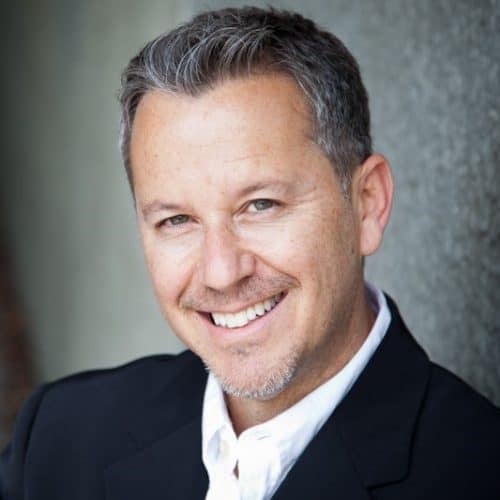
Neil Landau
Neil Landau is an award-winning Screenwriter, Producer, Author, and screenwriting Professor. His screen credits include the cult comedy Don’t Tell Mom the Babysitter’s Dead starring Christina Applegate, Melrose Place, The Magnificent Seven, Doogie Howser, M.D., The Secret World of Alex Mack, Twice in a Lifetime, MTV’s Undressed, The Young & the Restless, Monarch Cove, and one-hour drama pilots for CBS, ABC, ABC Family (aka Freeform), Warner Bros., Disney, Lifetime, and Freemantle.
His animated movie projects include the animated feature Tad: The Lost Explorer (aka Las Adventuras de Tadeo Jones) for which he earned a Spanish Academy “Goya” Award and Cinema Writers’ Circle Award for Best Adapted Screenplay (2013). Tad2, from Paramount, premiered in August 2017 (once again to record box office). Paramount has already green-lit Tad3.
Neil also co-wrote the animated feature Capture the Flag (also for Paramount); and the animated movie, Sheep & Wolves, for Wizart Animation (The Snow Queen), 2017 release. He’s currently writing and executive producing two new animated feature films.
As Co-Director of Screenwriting in the Department of Film, Television & Digital Media at UCLA School of Theater, Film and Television (his alma mater), Neil currently runs the MFA in Writing for Television Program where he also facilitates a first-look Writing the One-hour Drama development workshop in conjunction with Sony Crackle (now in its fifth year).
In his role as Assistant Dean of Dean’s Special Programs, Neil is also honored to be on the leadership team of UCLA TFT’s Storytelling Institute and Residency in partnership with Université Côte d’Azur, the City of Cannes, the Cannes International Film Festival, and sponsor Vivendi.
Neil is author of several bestselling books: 101 Things I Learned in Film School (Grand Central Publishing, 2010, now in 12 languages); The Screenwriter’s Roadmap (Focal Press, 2012, now in 10 languages); and The TV Showrunner’s Roadmap (Focal Press, 2014, now in 7 languages).
His fourth book, TV Outside the Box: Trailblazing in the Digital Television Revolution, published by Focal Press/Taylor & Francis/Routledge (2016), was sponsored by NATPE. His new and fifth book, TV Writing On Demand: Creating Great Content in the Digital Era, was published in January 2018.
Neil served for several years as Executive Script Consultant in the international divisions of Sony Pictures Television and Columbia Pictures.
He gives lectures and hosts workshops around the world on the art and craft of screenwriting, including USC School of Cinematic Arts, NYU Tisch School of the Arts, La Femis in Paris, Met Film School in London, University of the Andes in Santiago, Alexander Mitta Film School in Moscow, Hebrew University in Jerusalem, Shanghai Film Art Academy, and Accademia Nazionale del Cinema in Bologna, Italy.
He’s an active member of the WGA West, the Academy of Television Arts & Sciences, PEN West, and on the Advisory Board of the French Film & TV Office in Los Angeles. He earned his MFA at Grady College at the University of Georgia (home of the prestigious Peabody Awards).
He has been featured in Variety, The Daily Bruin, USC Film Professor Henry Jenkins’ blog, and the Hilliard Guess’ Screenwriters Rant Room podcast.
References
- 1Multiple. "Film Professor Salary". Zip Recruiter. published: 17 August 2020. retrieved on: 24 August 2020





